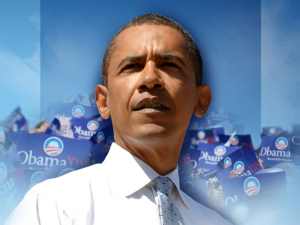President Obama has disappointed many environmentalists during his presidency — an almost unavoidable situation for most presidents — and, roused by the BP oil spill, they are watching him ever more intently. Now, it would seem that Obama is attempting to set a new precedent for the coming year. Meanwhile, environmentalists are sitting on the edge of their chairs, anxious to know what his next move will be.
“I challenge you to join me in setting a new goal,” Obama said in his 2011 State of the Union Address. “By 2035, 80 percent of America’s electricity will come from clean energy sources.” This is one of the various goals Obama spoke of in his address — a goal built upon the pillars of “innovation, education and infrastructure.”
He argued that innovation is key to “winning the future.” It drives the creation of new industry and jobs — it creates a market for the renewable energy that is vital if we are to compete with countries such as China, which currently has the world’s largest private solar research facility. Linking clean energy technology with jobs creates benefits across the board.
Obama spoke of cutting oil subsidies and reinvesting them in renewable energy. “With more research and incentives, we can break our dependence on oil with biofuels and become the first country to have a million electric vehicles on the road by 2015,” Obama said.
However, there is a catch. Businesses need to know that there will be a market for what they are selling. Investors need to see the growth and stability of a market for clean energy. If not, who will put themselves out on a limb?
Therefore, it is necessary that everyone take part in this new movement to wean the country off of finite resources, so that the environmental repercussions do not continue to grow. Research is expanding but, as Obama argued, “If we want to win the future — if we want innovation to produce jobs in America and not overseas — then we also have to win the race to educate our kids.”
As in most cases, there are issues of cost and efficiency. Electric cars, solar panels and geothermal heating are pricey ventures for many families, but another great struggle is the inability of people to see the long-term benefits that result from a large initial investment.
While clean energy may be unaffordable in many homes, businesses are working to help families overcome the costs. Obama spoke of a roofing company hit hard by the recession and in possession of unused space. “Today, with the help of a government loan, that empty space is being used to manufacture solar shingles that are being sold all across the country,” Obama said.
Step by step, the transition to clean energy sources is transpiring, as scientific evidence for climate change slowly seeps into the public eye. Though talk of environmental issues has become more prominent on the political battlegrounds, with the current political gridlock it will be difficult to accomplish anything quickly. However, with time, perhaps the need to change our environmental situations will become more apparent to everyone, partisan and politician alike.
Goldstein is a member of
the class of 2013.
hobbies
Hobbies and mediocrity: you don’t have to be good at everything
Writing became something I had to be good at in order to share.
fight
We must keep fighting, and we will
While those with power myopically fret about the volume of speech and the health of grass, so many instead turn their attention to lives of hundreds of thousands of human beings.
Israel-Palestine
Conversations that matter: Nora Rubel’s hope of shaping future political discourse on Israel and Palestine
Interpreted by some as an anti-Israel and anti-Zionist series, Rubel emphasized that while the need to support a particular side passionately is understandable, it is crucial to be aware of what you are standing behind by exposing yourself to historical and present knowledge.



